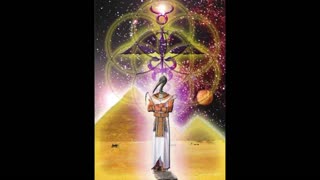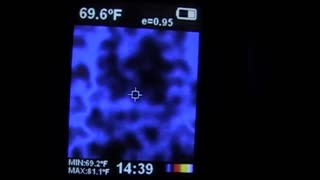Premium Only Content

The Apocalypse of Adam, Female Voice, Audio Book
The Apocalypse of Adam, translated by Willis Barnstone
http://www.gnosis.org/naghamm/nhl.html
The Nag Hammadi Library, a collection of thirteen ancient books (called "codices") containing over fifty texts, was discovered in upper Egypt in 1945. This immensely important discovery includes a large number of primary "Gnostic Gospels" – texts once thought to have been entirely destroyed during the early Christian struggle to define "orthodoxy" – scriptures such as the Gospel of Thomas, the Gospel of Philip, and the Gospel of Truth. The discovery and translation of the Nag Hammadi library, initially completed in the 1970's, has provided impetus to a major re-evaluation of early Christian history and the nature of Gnosticism.
Excerpt from:
The Gnostic Gospels
by Elaine Pagels
Vintage Books, New York: 1979
pp. xiii-xxiii
... those who wrote and circulated these texts did not regard themselves as "heretics. Most of the writings use Christian terminology, unmistakable related to a Jewish heritage. Many claim to offer traditions about Jesus that are secret, hidden from "the many" who constitute what, in the second century, came to be called the "catholic church." These Christians are now called gnostics, from the Greek word gnosis, usually translated as "knowledge." For as those who claim to know nothing about ultimate reality are called agnostic (literally, "not knowing"), the person who does claim to know such things is called gnostic ("knowing"). But gnosis is not primarily rational knowledge. The Greek language distinguishes between scientific or reflective knowledge ("He knows mathematics") and knowing through observation or experience ("He knows me"), which is gnosis. As the gnostics use the term, we could translate it as "insight," for gnosis involves an intuitive process of knowing oneself. And to know oneself, they claimed, is to know human nature and human destiny. According to the gnostic teacher Theodotus, writing in Asia Minor (c. 140-160), the gnostic is one has come to understand who we were, and what we have become; where we were... whither we are hastening; from what we are being released; what birth is, and what is rebirth.
Yet to know oneself, at the deepest level, is simultaneously to know God; this is the secret of gnosis. Another gnostic teacher, Monoimus, says:
Abandon the search for God and the creation and other matters of a similar sort. Look for him by taking yourself as the starting point. Learn who it is within you who makes everything his own and says, "My God, my mind, my thought, my soul, my body." Learn the sources of sorrow:, joy, love, hate . . . If you carefully investigate these matters you will find him in yourself. The "living Jesus" of these texts speaks of illusion and enlightenment, not of sin and repentance, like the Jesus of the New Testament. Instead of coming to save us from sin, he comes as a guide who opens access to spiritual understanding. But when the disciple attains enlightenment, Jesus no longer serves as his spiritual master: the two have become equal--even identical.
Orthodox Christians believe that Jesus is Lord and Son of God in a unique way: he remains forever distinct from the rest of humanity whom he came to save. Yet the gnostic Gospel of Thomas relates that as soon as Thomas recognizes him, Jesus says to Thomas that they have both received their being from the same source:
Jesus said, "I am not your master. Because you have drunk, you have become drunk from the bubbling stream which I have measured out.... He who will drink from my mouth will become as I am: I myself shall become he, and the things that are hidden will be revealed to him."
-
 2:19:26
2:19:26
Spoken Scriptures 33
3 years agoThe Emerald Tablets of Thoth, Female Voice, Audio Book
7381 -
 0:34
0:34
Missouri Paranormal Association
4 years agoPythian Castle Female Voice
91 -
 0:03
0:03
Missouri Paranormal Association
4 years agoZoom-in of Female Voice Pythian Castle
48 -
 7:15
7:15
PatrickWCutler
3 years agoTesting Voice Over Audio Effects For A Horror Film!
152 -
 18:30
18:30
LouHillier
4 years agoChristmas Time - Guided Sleep Mediation Female Voice
68 -
 3:48
3:48
PatrickWCutler
3 years agoProducing Audio Voice Over Musical vocals for Jesus Christ Superstar
187 -
 LIVE
LIVE
Edge of Wonder
4 hours agoChristmas Mandela Effects, UFO Drone Updates & Holiday Government Shake-Ups
362 watching -
 1:37:36
1:37:36
Mally_Mouse
3 hours agoLet's Play!! -- Friends Friday!
8.46K -
 DVR
DVR
LFA TV
23 hours agoObama’s Fake World Comes Crashing Down | Trumpet Daily 12.20.24 7PM EST
3.6K3 -
 LIVE
LIVE
2 MIKES LIVE
2 hours ago2 MIKES LIVE #158 Government Shutdown Looms and Games!
233 watching